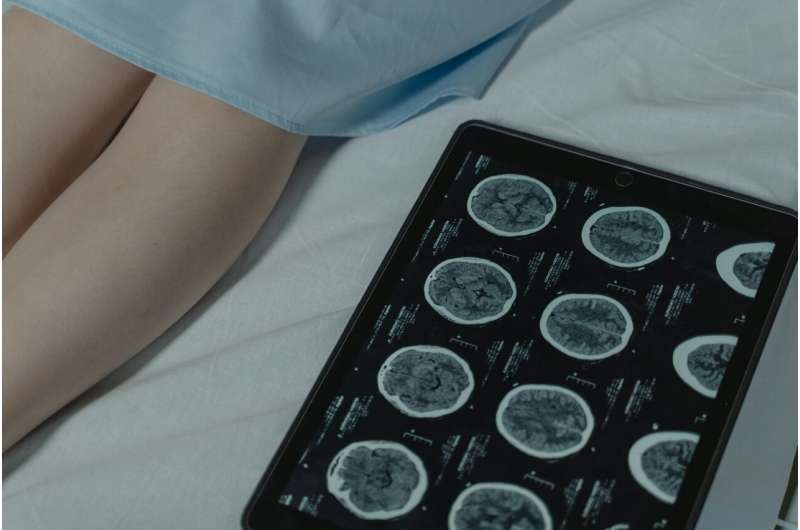The research, published in JAMA Psychiatry by teams at Imperial College London, the University of Oxford and King’s College London, suggests that the underlying biological basis of psychosis doesn’t correspond to traditional diagnostic labels.
The researchers used PET scanning to examine the brains of people who were experiencing their first episode of psychosis with other mood disorders involving either depressive or manic symptoms, to measure how much dopamine the brain made.
Across both diagnostic groups scanned—people experiencing mania or depression—increased dopamine synthesis was linked to positive psychotic symptoms, such as hallucinations or delusions.
This suggests that antipsychotic drugs, which target the dopamine system, may be suitable to treat psychotic symptoms across diagnoses.

